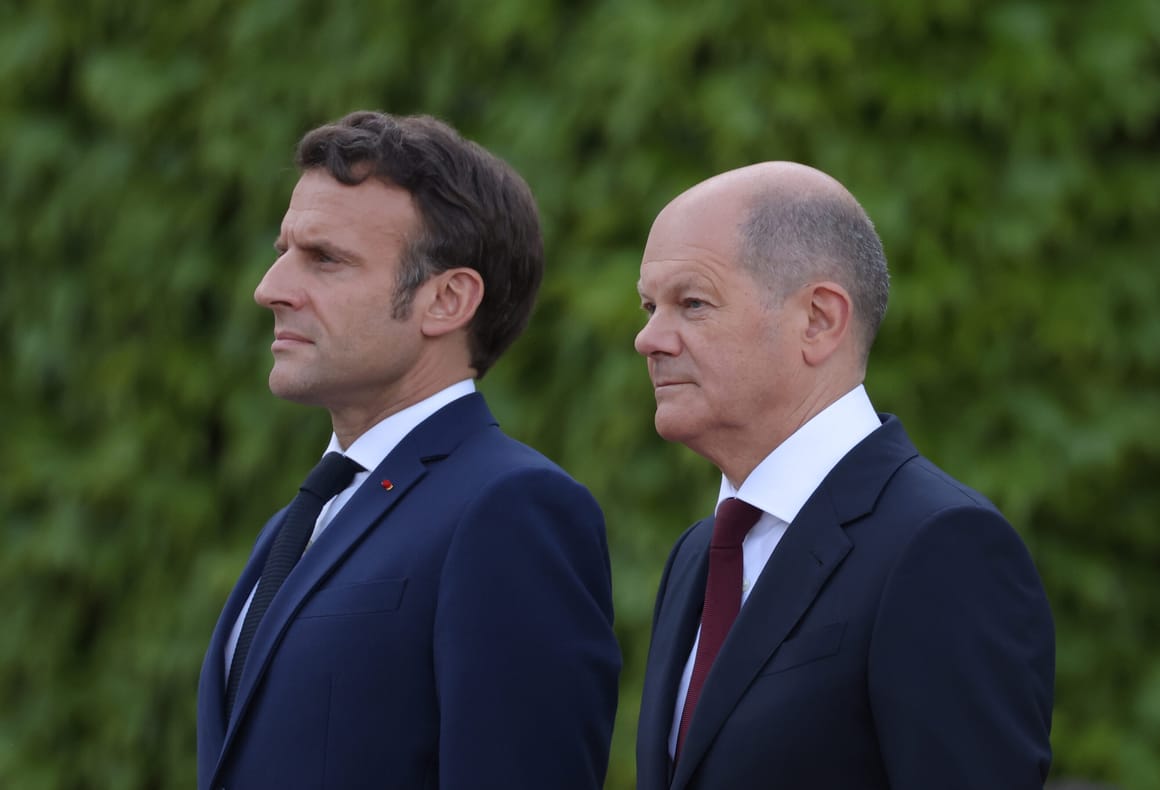The rift between Paris and Berlin was exposed earlier this week when Macron declared that while “there’s no consensus today to send… troops on the ground” to Ukraine, “we cannot exclude anything.”
Responding a day later, Scholz told reporters that there will be “no ground troops, no soldiers on Ukrainian soil, who are sent there by European or NATO countries”, and that the alliance’s leaders were “unanimous as far as this question is concerned”.
Macron’s statement was “deliberately ambiguous”, and intended to “create uncertainty in the mind of Russian military planners”, Bloomberg reported, paraphrasing anonymous officials. However, it was made “against the express wishes of Scholz’ office”, the same officials said.
In a further dig at the German chancellor, Macron followed up his comment by calling out NATO members who had offered Ukraine nothing but “helmets and sleeping bags” when the conflict with Russia began in February 2022. According to Bloomberg, this was perceived as an insult by the chancellery, considering that Scholz rapidly overcame his initial reluctance to send lethal weapons to Ukraine, with Germany now Kiev’s second-largest provider of military aid.
Despite Macron’s apparent willingness to escalate, Germany has sent Ukraine 27 times more bilateral military aid than France (€17.7 billion to €0.64 billion), according to figures from the Kiel Institute for the World Economy.
“In Berlin”, Bloomberg noted, “Macron is seen as a monarchical figure who is better at issuing grand visions than delivering.” Close aides to Scholz acknowledged to Bloomberg that “the two don’t get along.”
On the other hand, “Macron sees Scholz as a leader without courage and ambition who cannot think beyond the short term”, a French official told the American news site.
Further evidence of this rift emerged on Monday when Macron announced that he was leading a coalition of states to provide Ukraine with “medium and long-range missiles and bombs” to strike deep into Russian territory. On Thursday, Scholz said that he was reluctant to send long-range Taurus cruise missiles to Kiev, as they could potentially be used to strike Moscow.
Scholz also angered British and French officials earlier in the week when he said that British Storm Shadow and French SCALP-EG cruise missiles – which are already being used by Ukraine and are roughly equivalent to the Taurus – required British and French crews to operate, a statement implying that both countries already had military personnel on the ground in Ukraine..
In his annual state-of-the-nation address on Thursday, Russian President Vladimir Putin warned that Western leaders toying with the idea of intervening in Ukraine “have already forgotten what war is”. Russia, he said, has a massive nuclear arsenal, and therefore “the consequences for potential invaders would be far more tragic” than in bygone eras.
